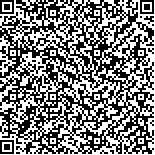|
| 引用本文: |
石振宇,路凤,王天奇,等.北京市整合城乡居民基本医疗保险对住院费用及其结构影响研究[J].中国卫生经济,2023,42(10):23-28,32.[点击复制] |
Shi Zhenyu,Lu Feng,Wang Tianqi,et al.The Effect of Integration of Residents’ Basic Medical Insurance Schemes on Hospitalization Expenses and Its Struc⁃ ture in Beijing[J].CHINESE HEALTH ECONOMICS,2023,42(10):23-28,32.[点击复制] |
|
| |
|
|
| 本文已被:浏览 879次 下载 415次 |

码上扫一扫! |
| 北京市整合城乡居民基本医疗保险对住院费用及其结构影响研究 |
| 石振宇,路凤,王天奇,孟庆跃 |
|
|
| (北京大学医学部公共卫生学院卫生政策与管理系 北京 100191 ;北京大学中国卫生发展研究中心 北京 100191;北京市卫生健康大数据与政策研究中心 北京 100034) |
|
| 摘要: |
| 目的:分析北京市整合城镇居民基本医疗保险和新型农村合作医疗政策 (整合后为城乡居民基本医疗保险) 对住院费用的影响,并定量估计不合理的住院费用增长所占比例。方法:利用2017—2018年北京市二、三级医院住院病案首页数据和北京市全国第6次卫生服务调查数据,采用双重差分模型和对数线性模型。结果:医保整合政策实施后,城乡居民基本医疗保险患者的住院实际报销比明显提高,住院服务可及性提升,住院总费用有所增长。城乡居民基本医疗保险患者住院费用人均增长约 587 元,其中不合理增长占比为 32.0%;改革后人均住院医保支出增加 1 237 元,其中不合理增长占比为 9.1%。结论:应当进一步完善医保支付制度,提高医保基金预算管理水平,优化医保政策监测和调整机制。 |
| 关键词: 医疗保险 医疗费用 住院费用 医保补偿水平 患者成本分担 北京 |
| DOI: |
| 投稿时间:2023-08-26 |
| 基金项目: |
|
| The Effect of Integration of Residents’ Basic Medical Insurance Schemes on Hospitalization Expenses and Its Struc⁃ ture in Beijing |
| Shi Zhenyu,Lu Feng,Wang Tianqi,Meng Qingyue |
| (Department of Health Policy and Management, School of Public Health, Peking University, Beijing, 100191 , China ;China Center for Health Development Studies, Peking University, Beijing, 100191 , China) |
| Abstract: |
| Objective: To analyze the impact of integrating urban resident basic medical insurance and the Rural New Cooperative Medical Scheme (referred to as urban and rural resident basic medical insurance after integration) on inpatient expenses in Beijing, and to quantitatively estimate the proportion of unreasonable increase of inpatient expenses. Methods: Secondary and tertiary hospitals’ discharge records in Beijing from 2017 to 2018 and Beijing Health Services Survey in 2018 (BHSS 2018) were used, with a difference in difference model and a log-linear model. Results: The integration of residents’ medical insurance schemes increased the reim- bursement for urban and rural resident basic medical insurance (URRBMI) inpatients and their accessibility to inpatient services, which was also accompanied by an increase in hospitalization costs. The insurance integration resulted in an increase of average annu- al hospitalization cost by about 587 yuan per inpatient, of which the unreasonable increase accounted for 32.0%. After the reform, ex- penditure of medical insurance fund increased by about 1 237 yuan per inpatient, of which 9.1% was unreasonable increase. Conclu- sion: The payment system of medical insurance and the budget management capacity of basic medical insurance fund should be fur- ther improved, and the mechanism for monitoring and adjusting medical insurance policies should be optimized. |
| Key words: health insurance medical expense hospitalization expense reimbursement of health insurance patient cost-sharing Beijing |
|
|
|
|
|